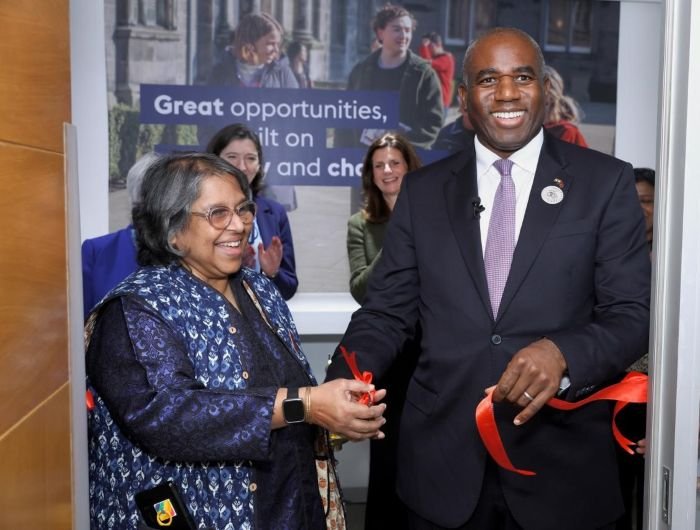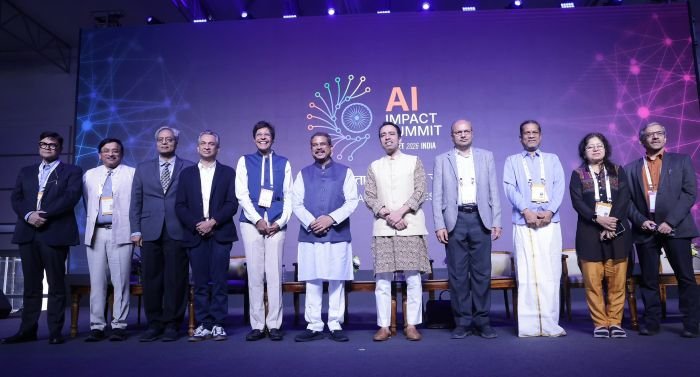
Campus placements are slowing getting out of fashion, pandemic has accelerated the trend
Sandeep Jain, founder-CEO of GeeksforGeeks, is a success story that goes beyond inspiring millions of last mile students of this country to showcase the futuristic power of galloping gig economy in disrupting brick and mortar model of learning/teaching. From studying at a private tier-3 engineering college in UP (BSA College of Engineering and Technology, Mathura), where no company visited for campus placement during his student days, to building one of India’s 50 visited web platforms with an outstanding global internet engagement ranking of 285 and importantly a hirer (200+ employees) himself. Autar Nehru spoke to him about his fascinating journey thus far, some excerpts:
Every idea has story behind its genesis, surely, there will be one behind GeeksforGeeks as well?
Yes. Like a majority of aspiring engineering students, who rigorously prepare for one or two years in the earnest of cracking JEE to join IITs but end up in a ‘no choice left’ option and land at some lesser known college, I too went to a private tier-3 college in Uttar Pradesh’s Mathura in that tradition. Campus placement was an unheard kind of word in my college those days and we always felt lagging behind in that sense.
So after my B Tech in Computer Science, I straight away got into masters at IIT Roorkee. In contrast at IITR, campus placement was even more than 100%. I too was picked up by D E Shaw & Company. The placement process like any normal student had made me nervous and before appearing for the interview, I spoke to several students to dispel my fears and what questions will be asked. After, getting the job, I kept thinking about all that I went through and this made me realize that there will be thousands of students like me, who don’t know about what companies expect from you and despite possessing most of the eligibility traits can’t express them before the interviewing panel. So, I started writing about this and created a blog, which I would keep adding on weekends and sometimes in after office hours.
So, GeeksforGeeks was born in 2009 as a pastime?
Yes, actually from the beginning, I had a passion for teaching and given a choice I would have become a teacher instead of getting into corporate. But then, Indian mindset, as you know, people run after salary. Anyway, my blog became an outlet for this passion, slowly it gained popularity. More people started contributing and several of them were students and developers. There was no money for 4-5 years but this kind of content was being consumed widely. The traffic to site was exponentially increasing.
And then, you took a decision to become a teacher?
It was one of the toughest decisions in my life. After working for about two years at D E Shaw & Company, I decided to switch my job and get into teaching. I had married and was expecting our child. Changing a well-paid job to a lesser paid job in that situation was a tough call. But as they say change is for better. At Jaypee Institute of Information Technology, Noida, I joined as an Assistant Professor. I was happy teaching programming and be among students. It gave time to contribute more to the blog and also added more perspective and experience. By 2015, my blog was making more money from ads than I was getting as salary and it had really grown and needed more attention. So, I left JIIT in 2015 and along with three interns of the same college registered Sanchhaya Education Private Limited to take this work full time.
Interview preparation was the mainstay of this blog?
Yes, we also now had a business model. Already a lot of students were participating by way of writing or engagement, so we set up a review team in our office. Its job was to review the content students write and check it for piracy, relevance and originality. We started paying them per published article. Many students became interns this way and besides getting financial help, we also gave them work from home internship certificates. This way, we procured a lot of content at lower cost and its consumption was all over the world. It was not only students but a lot of working professional who took interest and engaged with our platform.
But you have now started online courses and some of these are already very popular?
Till 2019, most of our revenue was from ads of our content on the platform. It gave us enough to run our business. With processes in place, we kind of explored online courses space for more growth. To test, we announced a course, which was intended for 50 persons. But we were surprised that within two minutes of its opening, 122 candidates had registered as our payment gateway had no mechanism of stopping at 50. And, most of these were working professionals. From there on, we are building portfolio of courses and pandemic situation has only increased the demand.
Can you elaborate on what kind of courses are these?
It is an expanding list and we are happy about it. A lot of our content is free and we had added free courses as well. Basically, for interview prep, our courses are designed to empower a programmer/coder or technical person on technical side of it (job profile). We talk about software technologies, teach them how industry is moving and address the gap. Apart from recorded courses, we have live sessions as well. Through these multiple session, we teach various short term courses. These are essentially upskilling courses on software development, coding languages, etc. One thing is important, we don’t issue any qualifications.
That brings me to ask you how has the recruitment process changed itself all these since you joined the industry?
Like I told about myself, there is sea change now. Engineering graduates beyond IITs and NITs or barring a few private colleges had no or were low on campus placement expectations. But all that is changing. Coronavirus pandemic has only made it more visible. Google had long stopped going to campuses. Some companies now don’t even want degrees if you are good. Companies have developed tools for online filtering of candidates through contests and tests. Tech world is really moving online if you take student into focus.
What will this shift from campus placement to direct online placement mode mean for students?
No matter where you study, you can still land a job in a big company of your choice. Upskilling, hard work and remaining focused on what you want can help in this. Now it is you, what you offer than brand of your college that matters. All I can say is that there is a lot of need for good programmers. Also, big IT companies are luring a lot of talent. Basically there is no dearth of jobs, but the whole issue is of right skills. Not many students/programmers have idea on how to be a problem solver and write that code. Our colleges are also part of the problem. What they teach isn’t used at work. There is a gap between classroom and industry. However, if a student is steadfast and interested, s/he can learn through courses like ours. It needs willingness to work hard, keep distractions away and train. People like us exist to fill the gap. There is no clear picture with students or working professionals about the expectations of company and market changes, so our advice and training comes handy.
Also, it is not restricted to computer sciences, students from other streams are being hired if they display problem solving skills aligned to company needs and right mindset.
Now you also brought engineering colleges into picture, how can they improve to become more relevant?
Infrastructure wise nothing more is needed as you have computers and connectivity. But it is quality of teaching that is important. So, you have to make job of teachers lucrative and attract people with high salaries and other facilities. Second would be upgrading curriculum though it is easy said than done, but then a way has to be found out. All students are good and can be turned into better engineers with right mix of knowledge and skills.
Has Covid19 made any impact on the tech job as such?
One thing I noticed is that people are hesitant to change jobs. But otherwise, in any way remote working was taking place before the pandemic as well. Many office which are close continue to work remotely and in fact many people are opting for it. This may become part of a permanent trend in future it seems. So, I would say no impact as such. We are hiring, so are many others.
In conclusion, what is in planning and how do you envisage future growth of your company?
We are looking at schools. We have started a YouTube channel where we offer some content and coding lessons. The idea is to understand school segment and then launch appropriate courses. In any case, we are expanding on courses and in coming years, will add more and keep you exciting and engaged.








